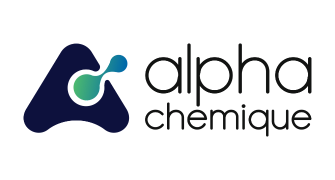Ethyl acrylate Introduction:
Ethyl acrylate, a significant chemical compound classified under acrylic esters, holds great importance in various industries. This clear, colorless liquid possesses a distinctive pungent odor. The purpose of this article is to delve into the properties, benefits uses, and significance of ethyl acrylate, shedding light on its characteristics and wide-ranging applications.
Properties:
- Ethyl acrylate has the chemical formula C5H8O2 and a molecular weight of 100.12 grams per mole.
- It is a highly flammable liquid with a low boiling point of approximately 95°C.
- Ethyl acrylate is soluble in many organic solvents, but only slightly soluble in water.
Benefits:
- Versatile reactivity: Ethyl acrylate is valued for its versatile reactivity in chemical reactions. It readily undergoes addition and polymerization reactions, making it a key building block for the synthesis of various polymers and copolymers.
- Good adhesion: Ethyl acrylate exhibits good adhesion properties, allowing it to bond well with a wide range of substrates. This makes it useful in adhesive formulations, coatings, and sealants.
- Weather resistance: Ethyl acrylate-based polymers possess excellent weather resistance, making them suitable for outdoor applications. They can withstand exposure to UV radiation, moisture, and other environmental factors without significant degradation.
Uses:
- Adhesives and sealants: Ethyl acrylate plays a crucial role as a primary ingredient in the formulation of adhesives and sealants. Its strong adhesion properties and ability to create robust bonds make it suitable for diverse applications in the packaging, construction, and automotive industries.
- Coatings and paints: Ethyl acrylate-based polymers are extensively utilized in the manufacturing of coatings and paints. These polymers contribute to the production of films with exceptional durability, weather resistance, and adhesion to various surfaces. They are commonly employed in protective coatings, architectural paints, and automotive finishes.
- Textile industry: The textile industry employs ethyl acrylate for textile coatings and finishes. It imparts desirable properties such as water repellency, stain resistance, and durability to fabrics, enhancing their performance and longevity.
- Emulsion polymers: Ethyl acrylate serves as a vital monomer in the production of emulsion polymers. These polymers find applications in multiple industries, including paints, adhesives, textiles, and paper coatings. They exhibit excellent film-forming properties, adhesion, and flexibility.
- Personal care products: Ethyl acrylate is incorporated into the formulation of personal care products like hair sprays, gels, and nail polishes. It contributes to the film-forming properties, adhesion, and durability of these products, ensuring their effective performance and longevity.
- Plastics and packaging: Ethyl acrylate-based polymers are utilized in the production of plastics and packaging materials. These polymers provide flexibility, impact resistance, and improved barrier properties to packaging films and containers, ensuring the protection and preservation of the packaged goods.
Conclusion:
Ethyl acrylate is a versatile chemical compound with a range of applications in adhesive formulations, coatings, paints, textiles, personal care products, plastics, and packaging. Its reactivity, adhesion properties, and weather resistance make it a valuable ingredient in various industries. By utilizing ethyl acrylate effectively, manufacturers can develop products with enhanced performance, durability, and functionality.
However, it is important to handle and use ethyl acrylate with caution, following appropriate safety guidelines and regulatory requirements, to ensure safe and responsible handling of this chemical compound.

